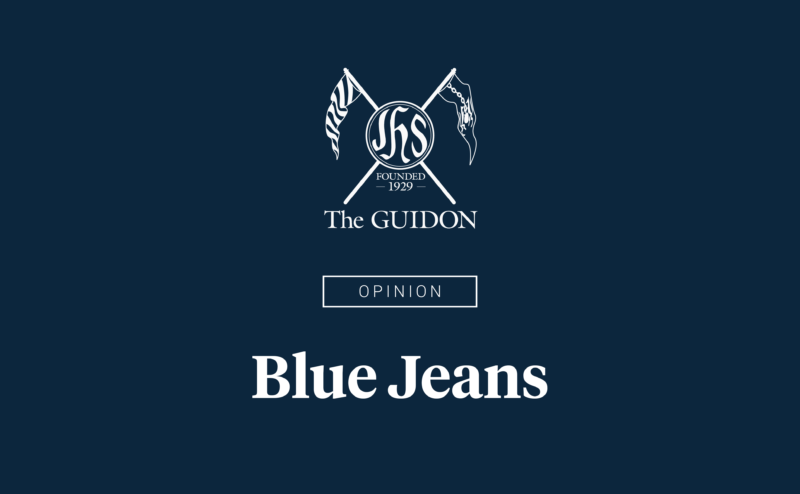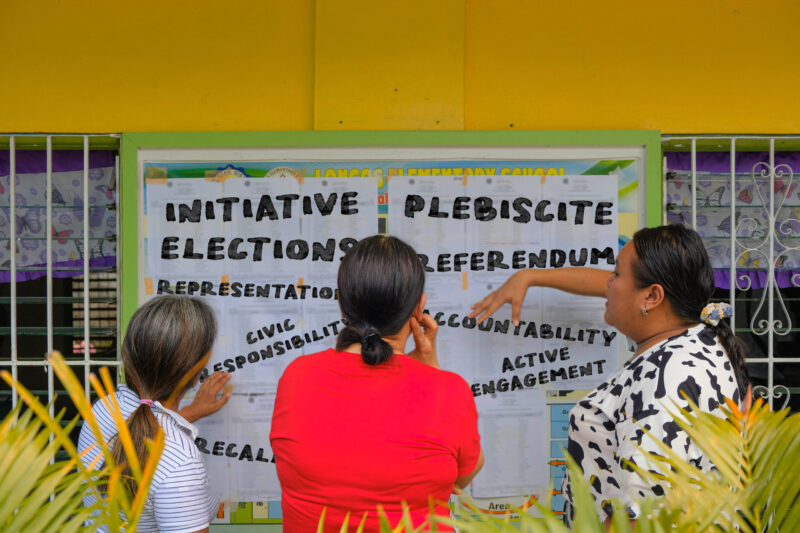CONTENT WARNING: This article includes mentions of domestic violence and abuse. Reader discretion is advised.
THE PHILIPPINE Basketball Association (PBA) is a prominent mainstay among Filipinos’ pastimes. However, beyond the entertainment the PBA provides, there lies a deep-seated issue rampant in the professional basketball league: violence against women (VAW).
Over the years, the PBA has received reports of several PBA players being domestically violent to their partners, yet no significant action has been taken to address these serious concerns. Evidently, the league’s lack of action can be seen as tolerance of abusing their wives, ultimately cultivating an environment that safeguards abusers rather than their victims.
Consistent allegations and snubs
Testament to this observation is Rain or Shine star Beau Belga, who made headlines after facing allegations of infidelity and abuse from his wife Queenie Manalo-Belga. Manalo-Belga attested that the power forward used their joint savings to fund his mistress’ expenses. Moreover, she shared photos of her bruised body on Facebook, which she claims were Belga’s doing. She tried reaching out to the three-time PBA champion about their situation but apparently, he refused to respond, prompting her to pursue a legal case against her husband.
Similar to Manalo-Belga’s case, Kristina Jalalon, the wife of Magnolia Hotshots’ Jio Jalalon, took to Instagram her frustrations toward her husband’s behavior. Throughout their relationship, K. Jalalon held that she suffered domestic abuse and infidelity but endured it for the sake of their two children.
Joining the list is Calvin Abueva, who was then suiting up for the Phoenix Fuel Masters and was slammed for the same matters. His wife, Sam Abueva, used his Instagram account to post screenshots and CCTV footage as proof of his alleged abuse. She further said that the forward also abused their children, calling on everyone to condemn domestically violent men. “Break the silence! Stop violence against women and children!” she wrote in an Instagram story.
Despite the noticeable pattern of infidelity and domestic violence these three cases bear, they share the exact same outcome: the PBA’s inaction. Although the professional league has repeatedly denounced VAW, all of these players remain unsanctioned and continue to play for their respective teams in the professional league.
Beyond in-game fouls
In July, the number of accused players only grew. Former UAAP courtside reporter Agatha Uvero alleged that Blackwater Bossing shooting guard Paul Desiderio committed VAW multiple times against her. In a Twitter thread, Desiderio’s estranged wife detailed the severity of her experiences, which included strangling, punching, and kicking, among others. Some of these apparently happened while Uvero was pregnant with the former UP Men’s Basketball standout’s child.
Although the PBA and Blackwater Bossing issued separate statements vowing to probe the truth behind Uvero’s claims, no updates have been made as of August. In the PBA’s response, it stated that VAW is a serious offense. Despite this, players like Belga, Jalalon, and Abueva remain on the hardwood competing for their ball clubs.
Desiderio’s incident quickly reignited discourse on the notion that domestic violence appears to be recurrent in the PBA. As the Association remains mum on this, domestic abuse survivors could get discouraged from ever coming forward to share their own stories in the long run.
Time and time again, women’s concerns regarding abuse are trivialized by the premier league. These women’s experiences are harshly invalidated, leaving them to fear for their lives as their abusers thrive and walk free.
Viable solutions
In a prestigious tournament where multiple athletes have been accused of VAW, it would be just to have these players immediately placed under investigation as soon as the allegations are brought to the league’s attention. The PBA can follow suit with the mandate of the National Basketball Association (NBA), the biggest basketball league in the world that also has numerous players facing the issue. In the NBA’s investigation procedure, the accused must appear before a panel that can reach a resolution for the charges. So long as the case remains unsettled, the accused must be prohibited from representing their team in official games if a legal case is filed.
Despite this, PBA sports teams view VAW as a personal matter. In Blackwater Bossing’s initial statement about the VAW allegations surrounding Desiderio, the team mentioned that it would only conduct its own investigation if the UP alumnus consents, out of respect for his privacy. However, the Filipino league must recognize that domestic violence is a criminal offense under R.A. 9262 rather than a mere civil issue, which justifies the concerned player’s indefinite suspension from play. To ensure that the involved PBA officials are really actively attempting to resolve the situation, concerned parties should be provided constant updates for transparency on the situation.
Regardless of the more established procedure of the NBA, the American league merely suspends players who are proven guilty. However, the PBA can consider that expelling the players from the league is only appropriate given the severity of a crime like domestic violence. The PBA has banned players who have gotten into serious physical altercations with teammates, fans, opponents, and others, albeit with the ban only lasting a season. Notably, Ivan Johnson was permanently banned for directing expletives toward the then PBA commissioner—if an offense such as this warrants a permanent expulsion, then VAW must also be treated the same.
Nonetheless, developing solutions to existing cases should not be the PBA’s final course of action for addressing domestic violence in the league. With lasting preventive policies in place, the league can impart healthier mindsets to its athletes. Gender sensitivity training is a suitable starting point for scrutinizing the structures that encourage male athletes to inflict different forms of abuse on their partners.
With this approach, gender seminars could aid athletes in discerning that acts of violence are neither acts of passion nor are they an appropriate way to express anger. Rather, they are acts of blatant cruelty that should not be downplayed. These sessions should not only be given in isolated cases, as combating this kind of behavior should be a league-wide effort.
While it is palpable that VAW is tremendously prevalent in sports, it is worth noting that it is a phenomenon that runs deep within the depths of our society. As misogyny prospers, women are belittled for being vocal about their plights, while men are praised for their masculinity against the backdrop of abuse.
The root of the problem lies in societal standards that assume women have ulterior motives when they finally muster up the courage to speak out against their abusive partners. It has also become a highly normalized mindset that violence is the only option for resolving conflicts between couples—VAW is the fruit of long-standing customs that strive to keep women silenced.
Eradicating these norms has long been overdue. Until they are successfully challenged and pushed to the brink of extinction, society, and sports, will remain unsafe spaces for women.







